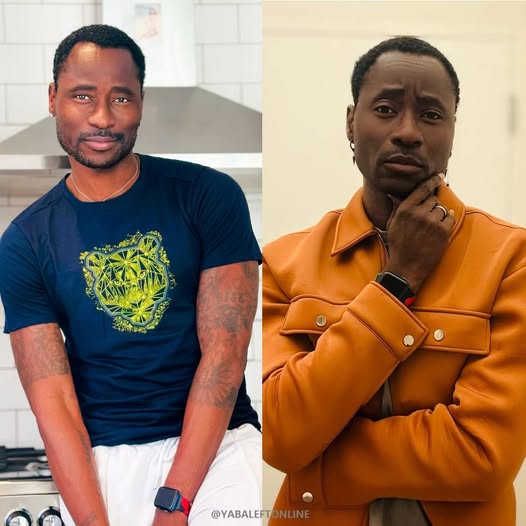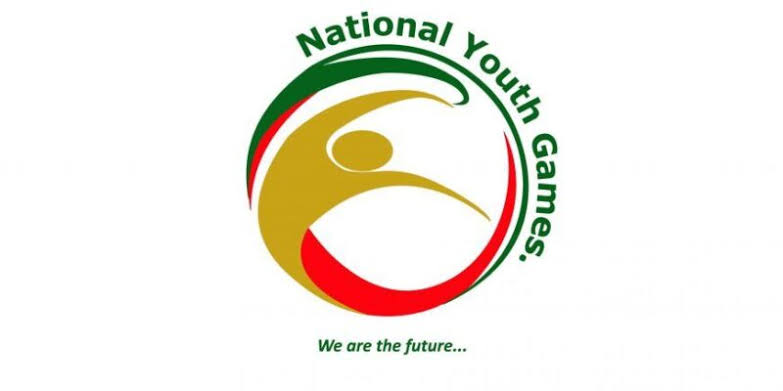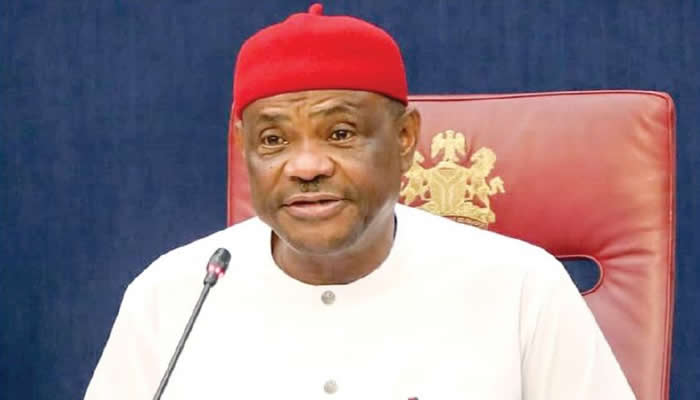
“How Do You Know You're Straight If You’ve Never Tried Men?” – Bisi Alimi Sparks Controversy With Bold Statement on Sexual Identity

In a provocative statement that has sent shockwaves across social media and reignited heated debates about sexuality and identity, prominent Nigerian gay rights activist, Bisi Alimi, has once again put himself at the centre of a cultural storm. The UK-based LGBTQ+ advocate, known for his fearless outspokenness and dedication to fighting homophobia, posed a deeply challenging and controversial question to heterosexual men around the world: “How do you know you are straight if you’ve never tried men?” The statement, which came during a candid interview segment online, was followed by a stunning revelation: “I have never had sex with a woman before.”
Bisi Alimi, who made history in 2004 as the first Nigerian to come out publicly as gay on national television, has long been a lightning rod for discourse on sexuality, rights, and the deeply entrenched taboos around homosexuality in African societies. However, his latest comments have triggered a fresh wave of reactions, ranging from support and applause to outrage and condemnation. The simplicity of the question he posed belies its explosive implications. In asking straight men how they are sure of their sexuality without having experimented with the same sex, Alimi turned the tables on a commonly held cultural assumption – that heterosexuality is the default or “normal” orientation.
The conversation around the validity and authenticity of sexual identities is not new, but in Nigeria and many African countries where homosexuality remains not only taboo but criminalized, such a statement carries immense weight. Alimi’s rhetorical question forces a deeper reflection: why is same-sex attraction viewed with suspicion, scrutiny, or moral disdain, while opposite-sex attraction is automatically accepted without challenge? In a society where many grow up with little to no education on sexuality beyond heteronormative standards, the mere idea of questioning one’s own orientation is often met with discomfort or hostility.
But Alimi’s point is clear – if gay people are constantly asked how they “know” they are gay without having dated the opposite sex, why shouldn’t straight people be subjected to the same line of interrogation? It’s a matter of fairness and logic, he argues, not provocation. Still, many critics didn’t see it that way. Responses online poured in, many calling his statement “ridiculous,” “inflammatory,” or “disrespectful to straight people.” Others accused him of trying to promote a “gay agenda” or attempting to blur the lines of sexual morality.
Yet amid the backlash were many voices expressing appreciation for the conversation Alimi had sparked. Some LGBTQ+ supporters praised him for continuing to challenge deeply ingrained societal norms, saying his words were necessary in a world that often punishes people simply for being themselves. Others took the opportunity to share their own journeys of discovering their sexual orientation, agreeing that self-awareness often requires exploration and reflection rather than blind acceptance of inherited beliefs.
Bisi Alimi’s refusal to fit into the mold of what a gay African man “should” be is exactly why he continues to be a vital, if divisive, figure in both LGBTQ+ and human rights discourse. Having fled Nigeria due to threats against his life and now residing in the United Kingdom, Alimi has built a platform that challenges the very cultural and religious beliefs that once sought to silence him. His Bisi Alimi Foundation works to advance social acceptance of LGBTQ+ people in Nigeria and across Africa, providing support for queer voices and pushing for reforms in a region where such advocacy is still dangerous.
His latest remarks might be seen as radical, but they are not without precedent in global discussions about sexuality. Across the world, particularly in more liberal societies, there’s growing acknowledgement of sexual fluidity and the fact that sexual identity can exist on a spectrum rather than within rigid binaries. Alimi’s commentary taps into that evolving narrative, asking not for conversion or confusion, but simply for introspection and empathy. If society expects LGBTQ+ individuals to explain, justify, or defend their identities, shouldn’t heterosexual individuals be open to the same scrutiny?
Still, in a Nigerian context, such questions are often treated as an existential threat. The country’s Same-Sex Marriage Prohibition Act, passed in 2014, criminalizes same-sex unions and imposes harsh penalties on LGBTQ+ advocacy, making public discussions of this nature fraught with legal and cultural consequences. Bisi Alimi’s courage in speaking out – particularly about something as intimate and personal as his own sexual history – is therefore not just a matter of personal expression, but an act of defiance against systemic oppression.
For many young Nigerians grappling with their identities in silence, Alimi’s openness may serve as a rare source of comfort and visibility. His declaration that he has never had sex with a woman may be shocking to some, but it is also a bold assertion that sexual orientation is not about experience alone, but about truth and authenticity. Just as a straight man doesn’t need to sleep with another man to know he isn’t gay, a gay man doesn’t need to try women to confirm he isn’t straight. The logic cuts both ways – and that’s exactly the point Alimi was making.
As the dust settles from this latest controversy, one thing is clear: Bisi Alimi remains unafraid to disrupt the status quo. His statements may offend, provoke, or enlighten – but they never go unnoticed. In a world that still struggles to accept diverse sexual identities, voices like his are crucial, not because they have all the answers, but because they dare to ask the uncomfortable questions others are too afraid to voice. Whether one agrees with him or not, Alimi’s challenge forces a reckoning with assumptions many have long taken for granted.
And maybe that, more than anything, is what true activism looks like.


